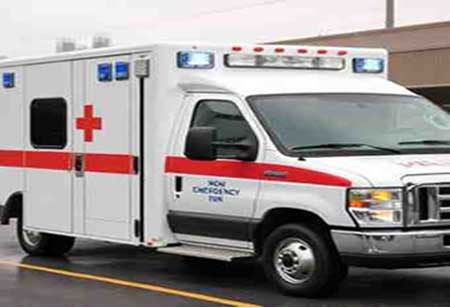Thank you for Subscribing to Healthcare Business Review Weekly Brief
The Role of Medical Transportation in Healthcare Delivery

Be first to read the latest tech news, Industry Leader's Insights, and CIO interviews of medium and large enterprises exclusively from Healthcare Business Review
Thank you for Subscribing to Healthcare Business Review Weekly Brief

By
Healthcare Business Review | Thursday, December 26, 2024
Stay ahead of the industry with exclusive feature stories on the top companies, expert insights and the latest news delivered straight to your inbox. Subscribe today.
Drones transform the medical delivery of essential supplies, particularly to remote and underserved areas. This technology enhances emergency medical services and supports healthcare systems in addressing logistical challenges.
FREMONT, CA: Medical transportation is critical to healthcare delivery, facilitating access to essential medical services. Across Europe, where healthcare systems vary between countries, medical transportation is a key factor in optimising patient outcomes and promoting equitable access to care.
Medical transportation is vital in enhancing patient outcomes by ensuring timely access to care, particularly in emergencies where rapid response can significantly improve survival rates. For conditions such as heart attacks or strokes, immediate transportation to healthcare facilities can make the difference between life and death. Additionally, reliable transportation facilitates consistent attendance at medical appointments and treatments for patients managing chronic illnesses, promoting adherence to care plans and improving long-term health outcomes. By ensuring continuity of care, medical transportation helps reduce hospital readmissions through timely follow-up visits and access to community-based services, easing the strain on healthcare systems.
Beyond improving clinical outcomes, medical transportation enhances quality of life, particularly for individuals with disabilities or limited mobility. Providing access to essential healthcare services fosters greater independence and supports overall well-being.
Medical transportation addresses geographical and socioeconomic barriers across Europe in terms of healthcare accessibility. Connecting patients in remote or underserved areas to specialised care centres bridges critical gaps in healthcare delivery. Affordable or subsidised transport options further mitigate socioeconomic disparities, ensuring equitable access to medical services regardless of financial background. Medical transportation also supports integrated care models, facilitating seamless coordination between hospitals, clinics, and community care providers to ensure comprehensive patient care.



